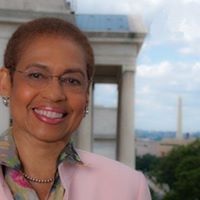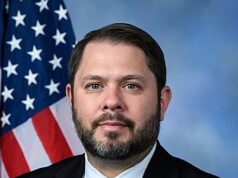Norton Introduces Bill Removing Federal Government’s Authority Over District-Owned Land
WASHINGTON, D.C. — (RealEstateRama) — Congresswoman Eleanor Holmes Norton (D-DC) introduced a bill today to remove the authority of the National Capital Planning Commission (NCPC) to review or approve the development of District of Columbia government-owned land. This bill is the eighth bill in Norton’s Free and Equal D.C. series, which is part of her two-track approach, simultaneously pursuing statehood while also passing bills that would expand D.C. home rule and equality, which does not require statehood. This is one of four bills Norton will introduce to remove the federal government from local D.C. land-use policies and decisions.

“The federal government should have no place in the development of District-owned land,” Norton said. “The District is not a federal agency and should not be treated as such by federal law. Not only is the federal government’s authority over D.C. buildings anti-democratic, it also delays and increases the cost of public and private development in the District.”
Under federal law, District-owned buildings in the “central area” are subject to NCPC approval, including the location, height, and size of the buildings. The District is required to consult with NCPC on buildings outside the central area, but NCPC only has advisory authority in those areas. The “central area” is decided by concurrent action of the NCPC and the D.C. Council, and currently consists of the Downtown and Shaw Urban Renewal areas. NCPC is the central federal planning agency for the federal government in D.C. and approves federal projects in the District as part of the comprehensive plan.
NCPC consists of 12 members: the Mayor of D.C., the Chair of the D.C. Council, two members appointed by the Mayor, three members appointed by the President, the Secretary of the Interior, the Secretary of Defense, the Administrator of the General Services, the Chair of the Senate Homeland Security and Governmental Affairs Committee, and the Chair of the House Oversight and Reform Committee.
This bill is the eighth in Norton’s Free and Equal D.C. series:
- The District of Columbia Paperwork Reduction Act (H.R. 735) would eliminate the congressional review period for D.C. bills.
- The District of Columbia Local Prosecutor Home Rule Act (H.R. 917) would allow the District to prosecute all crimes committed under its local laws. Currently, the U.S. Attorney for the District prosecutes almost all crimes committed by adults under local D.C. law.
- The District of Columbia National Guard Home Rule Act (H.R. 1090) would give the D.C. Mayor the authority to deploy the D.C. National Guard for local matters. Unlike governors of the states, and even territories, the District’s chief executive officer has no authority over its local Guard.
- The District of Columbia Home Rule Clemency Act (H.R. 1378) would give the District exclusive authority, like the states and territories, to grant clemency to offenders convicted under its local laws. Currently, this authority is exercised in D.C. by the President.
- A bill (H.R. 1318) to require the Library of Congress to install the District of Columbia seal in the Main Reading Room of the Thomas Jefferson Building of the Library of Congress. Currently, the stained-glass windows contain the seals of all states and territories that existed when the building was constructed, except for the D.C. seal, which was readily available at the time and should have been depicted.
- The District of Columbia Home Rule Non-Discrimination Act (H.R. 1408) would eliminate the applicability of the Religious Freedom Restoration Act of 1993 to the District.
- The District of Columbia Zoning Commission Home Rule Act (H.R. 1538) would give D.C. the authority to appoint all members of the D.C. Zoning Commission.
###













